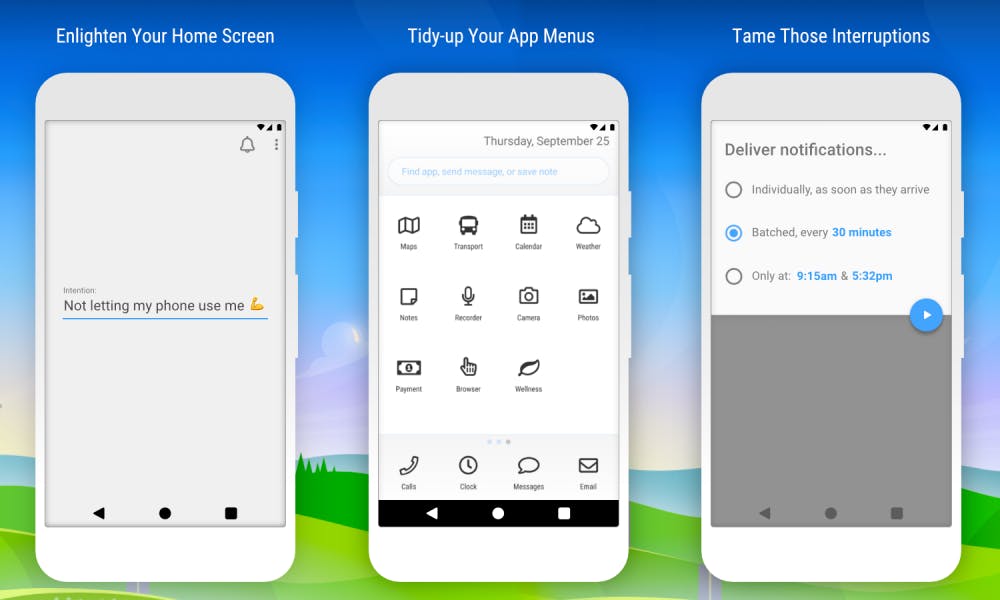A Wharton alumnus has recently launched an app that aims to help students focus on the world outside of screens.
Siempo, a new phone app on the Google Play store co-founded by 2012 Wharton graduate Andrew Dunn, aims to minimize the distraction caused by smart phones, and to prevent their overuse.
“We want smart phones to be good for our well-being, for our mental health, for our productivity, for our sleep, for our relationships, and unfortunately right now many of them are designed to be in the way of that," Dunn said. "So we’re trying to reimagine the tools as being on our side, and having our best intentions in mind.”

In the first three weeks, the app has reached several thousand downloads, a few hundred daily active users, and a 4.1-star rating out of five in the Google Play store.
“The app is geared towards people who are looking to create a healthier relationship with their technology," Dunn added. “One of my motivations for starting this is that I struggled with this problem throughout my teenage and college years, and I feel like it was a decade being under this hypnosis of technology that really stifled my emotional development and limited my potential in life."
According to the app’s description on the Google Play store, it has several features to help users build better tech habits, like a less distracting home screen, receiving notifications only at set intervals, and a tiered app menu system that keeps helpful apps more visible and distracting apps out of sight.
Matthew Brauer, lead product designer for the team, said the Siempo team learned a valuable lesson about customization when, early on, the project unsuccessfully pitched a hardware device — almost like a "dumb phone" — with fewer distracting features.
Related:
Two Penn sophomores created 'Tik Tak,' an anonymous messaging app to replace Yik Yak
From rock climbing to raising livestock: see this semester's Wharton Passion Projects
“What is a useful app to one person and a distracting app to one person could be the opposite for another person. So that made the hardware solution a little more difficult," Brauer said. "The software solution through Android was a great solution because it allowed people to select which apps they find distracting, which notifications they find distracting and customize the user interface so it’s more mindful.”
On the state of the app, Dunn said, “We just launched our beta in the Play store a few weeks ago. It’s a pretty minimal feature set, but it gives a preview for what’s to come. We definitely plan on expanding functionality to continue helping people reduce overuse and unconscious usage.”
“I really like it because it keeps things simple, and it’s easy to get distracted with the normal Android interface...but Siempo tones it down,” said user Ben Ewing. “In terms of how it impacts me, it really just helps me use my phone for what I want to use it for instead of what it wants to use me for.”

Dunn said he hopes the app can be an example for college students, particularly Penn students.
“One of my motivations for making this business successful is to show other students how we can do business differently, how we don’t need to follow the same playbook that Uber and Facebook follow,” Dunn said.
As a Wharton alumnus, Dunn discussed the lack of variety in Penn students' post-graduation plans.
“I think that it would be wonderful to have more examples of alumni who have taken alternate career paths,” Dunn said. “[It was helpful] having role models, having mentorship, being able to connect with alumni who are doing something a little different, whether that’s volunteer work or social impact or even things like cryptocurrency and international development.”
Dunn has also started an online community called Wharton Wisdom, which is dedicated to alumni who are interested in personal growth and integrating that with their work in the world. “I’ve identified that there are a lot of people in the world that have gone through the conventional career path and along the way discovered something that called them a bit more.”
Dunn added, “Eventually I want to integrate this with people on campus so we can help other students connect with their deeper purpose and find that thing that makes them come alive.”



